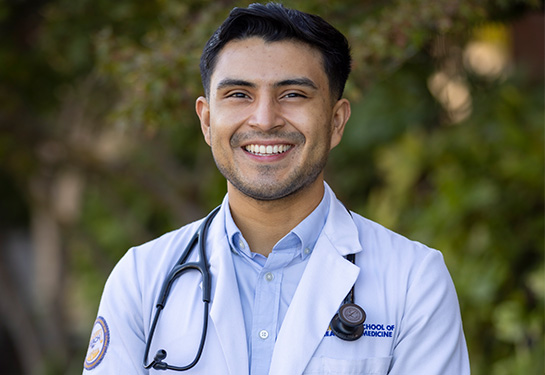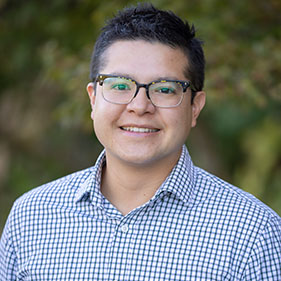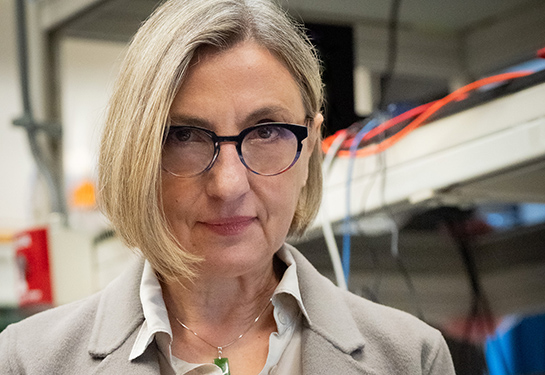Medical student receives national award for diversity efforts
Andrés Maldonado is latest UC Davis recipient of the AAMC Nickens Scholarship
When Andrés Maldonado scrolled through the websites of medical schools three years ago, wondering which one to apply to, something about UC Davis caught his eye.
He noticed a page titled “UC Davis School of Medicine Matriculant Demographics.” Intrigued by what he saw, Maldonado downloaded the file, a snapshot of the newest medical students. About a third — 34% — were Latino. Nearly three quarters — 72% — came from economically disadvantaged backgrounds. And 43% were the first generation in their family to graduate from college.
“I got really excited because no medical school class demographic profile looked like that, none whatsoever,” said Maldonado, who identified with all three categories.
Maldonado applied for admission, got in and quickly immersed himself in meaningful efforts to promote diversity and provide care for people in underserved communities.
On Monday, he will receive an impressive national award for outstanding students who show leadership to eliminate inequities in medical education and health care, and who address the educational, societal and health care needs of underrepresented individuals.
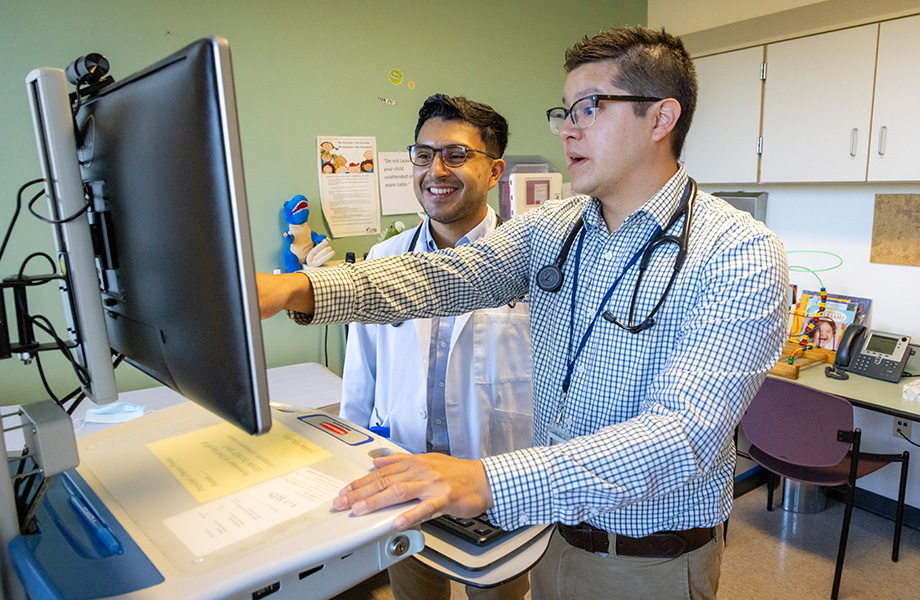
The prestigious recognition — the 2023 Association of American Medical Colleges (AAMC) Herbert W. Nickens Medical Student Scholarship — will be presented at the organization’s annual conference in Seattle. Maldonado is one of five recipients from across the country.
“I’m being recognized at the national level, so for me, honestly, as cliché as this may sound, it’s a dream come true,” Maldonado said. “It makes me feel reassured that Davis is the right place for me because I don’t think the diversity, equity and inclusion work that I’ve done here would have been possible elsewhere.”
He is a third-year student in the TEACH-MS pathway, which trains future doctors to care for patients in urban, underserved areas.
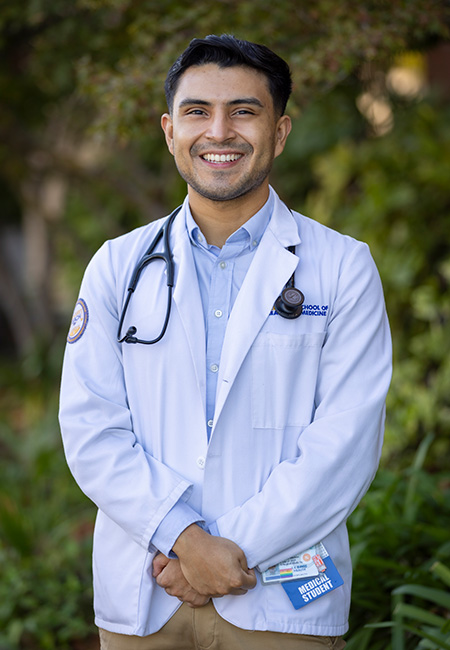
Maldonado’s achievements during his first three years of medical school include:
- Co-director of Clínica Tepati, a student-run clinic
- Co-founder of Clínica Tepati’s Mentorship Program that connects the clinic’s medical students with undergraduates
- Co-founder of the school’s Club de Español Médico
- Co-president of the school’s Latino Medical Student Association (LMSA) chapter
- Recipient of the 2022 LMSA National Scholarship
- Member of the school's Medical Pathways Advisory Council
- Persuading School of Medicine leadership to double the stipend for financially disadvantaged students to travel to diversity conferences
“His accomplishments, interests and passions reflect his dedication and leadership to addressing health care disparities in the United States which this award recognizes,” said Sean Muñoz, a UC Davis Health clinical assistant professor of pediatrics and mentor to Maldonado. “I am very happy for him and grateful to be a part of his medical school training.”
By winning the Nickens Scholarship, which comes with a $5,000 prize and invaluable prestige, Maldonado also draws more national attention to how the UC Davis School of Medicine recruits and supports students from historically underrepresented backgrounds. The medical school has been ranked the third most diverse in the country, according to US News & World Report.
It’s also a school that now has eight Nickens student scholars.
His accomplishments, interests and passions reflect his dedication to addressing health care disparities in the United States which this award recognizes.”—Sean Muñoz
Humble beginnings and top-notch education
Maldonado, the middle of five children, was born to hard-working Mexican American parents. His father, an ironworker, and his mother, a fast-food restaurant employee, settled in the sprawling East Bay city of Fremont.
His deeply Catholic parents felt a huge sense of financial relief when Maldonado received a full scholarship to attend Moreau Catholic High School in Hayward, a college-preparatory school 30 minutes away from his home. But even though the school had a reputation for preparing students for elite colleges, Maldonado’s father was expecting his son to take up a career in ironwork.
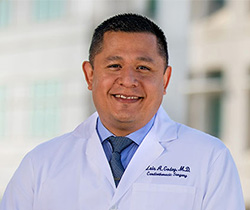
Read about thoracic surgeon Luis Armando Godoy who was honored with the AAMC Herbert W. Nickens Faculty Fellowship for his work fighting inequities and promoting diversity in medicine.
UC Davis surgeon recognized nationally for commitment to diversity in medicine
For as long as he can remember, Maldonado spent weekends and vacations helping his father, first with simple jobs like organizing scrap metal and later more important duties like welding. “I was so excited to help and just feel like I was providing, making a living for our family,” he said.
His father was excited, too, investing time in training Maldonado to be a skilled welder. “He aspired for me to follow in his footsteps because I was so good at his craft.”
Maldonado’s high school years were uneasy, emotionally, because he was straddling three separate worlds.
One world, hidden from view, was based on his sexual orientation. Maldonado was gay but felt he couldn’t tell anyone. He was receiving a free Catholic education and was the son of socially conservative, old-school Mexican parents.
Another world was filled with Advanced Placement classes and high academic standards, anchored by a long-held dream of becoming a doctor. It was a place he felt his parents couldn’t fully understand, nor help him navigate due to their own lack of schooling.
The other world was grounded in day-to-day survival where Maldonado’s father took on grueling jobs and his mother worked at Wendy’s until her struggles with epilepsy rendered her disabled.
Still, Maldonado excelled through high school with straight A’s. He was highly motivated to apply to as many colleges as his family could afford in application fees. This meant applying to every University of California school, and many other prestigious institutions, including Columbia.
Every school accepted him.
Preparing for a difficult announcement
Maldonado chose to attend Columbia College in New York City, which offered a full scholarship and the majors he wanted to pursue: Hispanic studies and neuroscience, a field inspired by his mother’s neurological disorder.
He also was ready to move away. “I really wanted to get out and explore other parts of who I am, and that’s also what drove me to the Northeast.”
Maldonado’s parents were shocked by his decision to attend Columbia. A college education would shatter his father’s hope of seeing his son become a talented ironworker. His mother meanwhile, complained that New York was too far from home.
As the summer of 2015 was coming to a close, Maldonado had one major task to complete on his pre-college checklist. He had to make the announcement that would crush his parents: He had to tell them he is gay.
Two weeks before moving away, Maldonado gained the courage to come out, one parent at a time. “It’s been the hardest thing I’ve ever had to do,” Maldonado said. “My dad didn’t talk to me for those two weeks.” His mother went quiet, too, overwhelmed with confusion and disappointment.
Maldonado was heartbroken.
The day he left for New York, Maldonado had something else to worry about, albeit briefly.
The sights, sounds and motion of the airplane provoked an anxiety he had never before experienced. “I was so scared,” he said. “Oh my God, I remember squeezing the person next to me as we were taking off. I was all, ‘What the heck’s going on?’”
That flight was Maldonado’s first time on a plane.
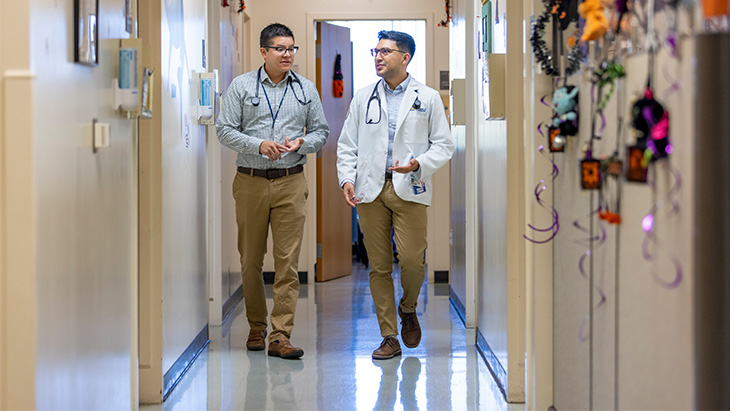
The unexpected happens at Columbia
As he settled into Columbia, Maldonado sought a support network by reaching out to students who looked like him or perhaps shared a similar socioeconomic background. After all, he reasoned, 17% of the student body was Latino, so it couldn’t be that difficult to make connections.
But he learned that a large share of the Latino students came from family circumstances quite opposite to his own. Some were students from South America, the sons and daughters of business executives and diplomats who had attended prestigious boarding schools, domestically and abroad.
He felt isolated.
“College is hard in and of itself, and to come from this background that is so unique and isn't shared by many, makes it especially hard,” he said.
It wasn’t until his senior year that he finally encountered another student from a similar upbringing. He and the young woman met in the Dominican Republic through a global health disparities research fellowship sponsored by the National Institutes of Health. They became best friends and will soon be physician colleagues.
Throughout college, Maldonado became involved in pre-medical societies, conducted research and took on projects with the school of public health. He still envisioned becoming a doctor, but his academic advisers weren’t so sure. They pointed to his 3.4 GPA and suggested he chase after other careers.
He didn’t budge.
“I wanted to pursue medicine, and, more specifically, I wanted to address health disparities. I wanted to serve and advocate for underserved populations,” he said.
After graduating with honors in 2019, Maldonado spent a year in New York to research migration and nutrition epidemiology at the Columbia University Mailman School of Public Health.
When the coronavirus pandemic whirled out of control, Maldonado packed his bags and moved home.
Preparing for the AAMC conference
Back in Fremont, Maldonado studied for his Medical College Admissions Test, worked for an Alzheimer’s Disease organization and resumed ironworking with his father. It’s also at home where he came across the UC Davis School of Medicine demographic fact sheet that would shape his future.
Maldonado was unsure what would become of the relationship with his father more than five years after coming out. But just two weeks before leaving for the UC Davis School of Medicine, his father approached Maldonado to apologize for reacting the way he did when he learned he is gay.
“Obviously, I accepted his apology and things are better now,” Maldonado said. “It’s still not something we talk about all too much, but he’s grown a lot and so have I. I think that the distance made us both think about ourselves, our perceptions of each other, our relationship as a whole and now we’re great.”
In fact, even though Maldonado now lives in Sacramento, about two hours from Fremont, he often drives home to take his parents to doctors’ appointments and to visit his siblings.
Over the next few days, Maldonado will put the finishing touches on a brief speech he’ll deliver at the awards ceremony of the AAMC conference, a gathering attended by nearly 5,000 people.
The most important people in medical school academia will be there, including about 20 faculty members and deans from UC Davis, several of whom are his esteemed mentors and admirers.
At a table nearby will be another cheering section — Maldonado rounded up money to send his parents and siblings to Seattle.
“When I told my dad I wanted him to go to Seattle, he was like, ‘you know, it’s been years since I took a day off of work and you’re not asking me for one, you’re asking me for two.’”
To which Maldonado replied: “Please?”

